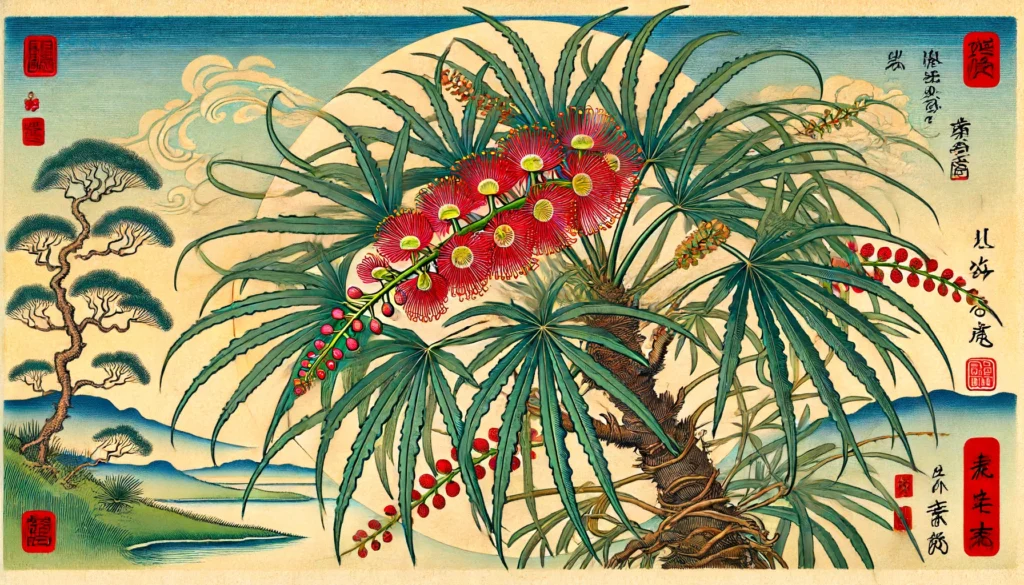

Home » Cat Plants » How Dangerous is the Australian Ivy Palm Plant for Cats?

The Australian ivy palm (Brassaia actinophylla), also known as umbrella tree, schefflera, octopus tree, or starleaf, is a common houseplant that is highly toxic to cats.
The plant contains the following toxic principles that can be harmful to cats:
While cats are not actually allergic to this plant, ingesting any part of it can cause severe irritation and potentially life-threatening symptoms. Australian ivy palms are commonly found as decorative indoor plants in homes and offices.
Ingestion may cause mild gastrointestinal upset, but is generally not life-threatening.
Ingestion can result in mild symptoms like vomiting, diarrhea, or drooling. Rarely fatal but may require veterinary care.
Eating these plants can lead to more pronounced symptoms like abdominal pain, lethargy, or difficulty breathing. Veterinary intervention may be necessary.
Ingesting even small amounts can cause severe symptoms like organ damage, seizures, or cardiac failure without rapid treatment.
All parts of these plants are extremely poisonous to cats and can quickly lead to death, even with immediate veterinary care.
** Please note: Please note that toxicity level can vary based on the amount ingested and the specific cat. It's always best to keep these plants completely inaccessible to cats and seek immediate veterinary care or call the poison hotline if you suspect your cat has ingested any part of a toxic plant.
If a cat chews on or ingests any part of an Australian ivy palm, it can experience a range of distressing symptoms due to the plant’s toxic compounds, which include calcium oxalate crystals, terpenoids, and saponins. These substances can cause:
In severe cases, ingestion of Australian ivy palm can lead to renal failure, convulsions, coma, and even death. If you suspect your cat has consumed any part of this plant, seek veterinary care immediately.
If you bring your cat to the vet suspecting Australian ivy palm poisoning, they will conduct a thorough examination to assess the severity of the situation. The diagnostic process may include:
For more information, consult the Pet Poison Helpline – Schefflera.

A: Yes, Australian Ivy Palm, also known as Schefflera or Umbrella Tree, is toxic to cats. It contains toxic principles such as terpenoids, saponins, and insoluble oxalates.
A: Symptoms of Australian Ivy Palm poisoning in cats include oral irritation, pain and swelling of the mouth, tongue, and lips, excessive drooling, vomiting, and difficulty swallowing.
A: All parts of the Australian Ivy Palm are toxic to cats due to the presence of terpenoids, saponins, and insoluble oxalates.
A: If you suspect your cat has ingested Australian Ivy Palm, contact your veterinarian immediately. They may recommend bringing your cat in for examination and treatment, which could include inducing vomiting, administering activated charcoal, or providing supportive care.
A: Yes, there are many pet-safe plants that cat owners can keep instead of Australian Ivy Palm. Some options include spider plants, Boston ferns, and catnip. Always research a plant’s safety before bringing it into a home with cats.
A: While the immediate symptoms of Australian Ivy Palm poisoning can be severe, long-term health issues are less common if the cat receives prompt veterinary care. However, repeated exposure or ingestion can lead to chronic health problems, so it is best to keep this plant out of reach of cats.
Australian ivy palm is native to the tropical regions of Australia and New Guinea. It was introduced to Europe and other parts of the world as an ornamental plant in the late 19th century.
The plant gained popularity due to its attractive appearance and ability to thrive in low-light conditions, making it a common choice for indoor spaces. Despite its toxicity to pets, Australian ivy palm remains a widely cultivated houseplant worldwide.
Please note: The information shared in this post is for informational purposes only and should not be considered as veterinary medical advice.